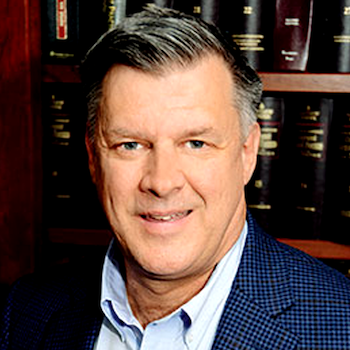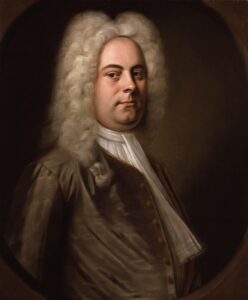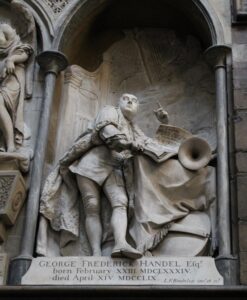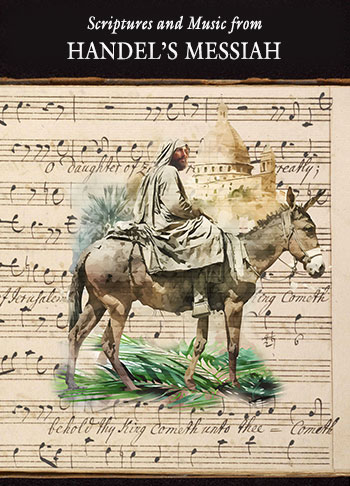Back to series


Handel’s sacred oratorio known simply as Messiah is performed globally at Christmas and Easter, and its “Hallelujah Chorus” is one of the most recognizable pieces of music ever written. I believe the reason Messiah continues to inspire people today is that its lyrics or “libretto” come directly from the Holy Scriptures. These words, inspired by the Holy Spirit, when sung, as David sang the Psalms, move, convict, and encourage our hearts and minds.
 We invite you to join us this Advent season as we draw upon the music and biblical lyrics of Handel’s Messiah to help us prepare to celebrate the birth of Jesus Christ. Each daily devotion will include a biblical text drawn directly from Messiah, a meditation written by one of our gifted CSLI authors, a colorful image for reflection, and a portion of the music of Messiah performed by The Falls Church Anglican Choir under the musical direction of Simon Dixon.
We invite you to join us this Advent season as we draw upon the music and biblical lyrics of Handel’s Messiah to help us prepare to celebrate the birth of Jesus Christ. Each daily devotion will include a biblical text drawn directly from Messiah, a meditation written by one of our gifted CSLI authors, a colorful image for reflection, and a portion of the music of Messiah performed by The Falls Church Anglican Choir under the musical direction of Simon Dixon.
George Frideric Handel, born in Germany in 1685, gained popularity in England as a composer of operas in the early 18th century. After initial success, however, a perfect storm occurred in Handel’s life. His mercurial temper gave him a bad rap in the industry, the public’s taste drifted away from his style of music, his health declined, his bank accounts dwindled, and he fell into depression.
Just when he thought his career was finished, he received an invitation in 1741 to produce a new work for a charity performance in Ireland. Handel turned away from the frivolous themes of his previous operas, pulled from his deep religious faith, and chose to create a different kind of piece based on biblical themes and Scriptures. To do this he reached out to a former collaborator, Charles Jennens, to select themes and verses from the Bible for a new oratorio.
Suddenly, Handel was revitalized with a vision to create a musical piece to honor his Lord and Savior, Jesus Christ. He began writing with super-human energy and zeal. One servant revealed that during the writing of Messiah, Handel hardly ate or slept. He completed Part 1 in six days, Part II in nine days, and Part III in six days. Within a few more days, he completed the final orchestration for this enormous piece of music. In fewer than 25 days, he completed what many believe to be one of the most inspired 2½ hours of music in history.
It’s said that while writing the “Hallelujah Chorus,” Handel’s servant found him with tears in his eyes, as he exclaimed, “I did think I did see all Heaven before me, and the great God Himself seated on His throne, with His company of Angels.”
Messiah premiered in a church in Dublin in 1742, for the Bishop of London had forbidden the performance of biblical works in theaters. It was immediately called a “masterpiece” as it worked through the prophecies of the Messiah through the birth, life, death, resurrection, and ascension of Jesus Christ.
When it premiered in London, King George was so moved by the “Hallelujah Chorus” that he stood up in reverence for the “King of Kings.” The entire audience followed suit and for 280-plus years, audiences have continued to do the same.
 In the years following, Handel continued to write music for the church. While they never met in person, Beethoven said, “To him I bend the knee, for Handel was the greatest, ablest composer that ever lived.”
In the years following, Handel continued to write music for the church. While they never met in person, Beethoven said, “To him I bend the knee, for Handel was the greatest, ablest composer that ever lived.”
Even with failing eyesight, Handel continued to per-form until he col-lapsed at age 74 while conducting a performance of Messiah. He went to bed saying, “I should like to die on Good Friday.”
Instead, he died on Holy Saturday, April 14, 1759. Handel is buried at Westminster Abbey, where his grave is marked by his statue next to a score of Messiah opened to the page that reads, “I Know That My Redeemer Liveth.”
As you worship the King of Kings through the biblical lyrics and music of Handel’s Messiah this Advent season, may you grow deeper in the knowledge and love of your Redeemer!
Read more about The Scripture Passages of Handel’s Messiah.

Joel Woodruff
President, C.S. Lewis InstituteJoel Woodruff, President, C.S. Lewis Institute, has worked in higher education, “tent-making,” nonprofit administration, and pastoral ministries in Alaska, Israel, Hungary, France, and Northern Virginia. He served as Dean of Students, Chaplain, and Professor of Bible & Theology at European Bible Institute, where he helped train Europeans both for professional ministry and to be Christian leaders in the marketplace. Prior to joining the Institute, he was on the leadership team of Oakwood Services International, a nonprofit educational and humanitarian organization. He is a graduate of Wheaton College, earned his M.Div. from Gordon-Conwell Theological Seminary, and has a doctorate in Organizational Leadership from Nova Southeastern University. As a Parish-Pulpit Fellow, he studied Biblical Backgrounds & Archaeology in Israel for a year.




